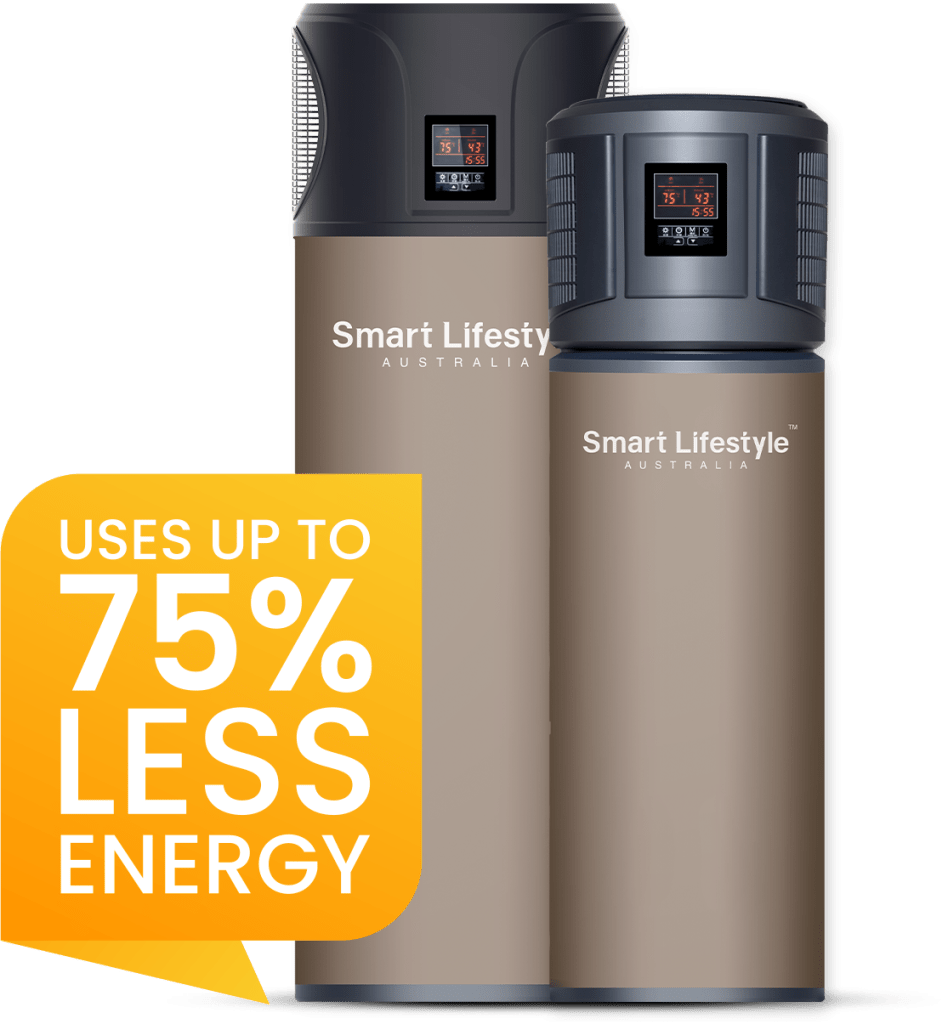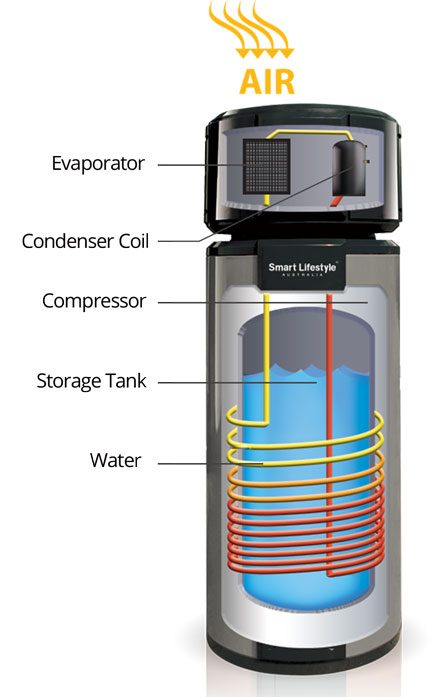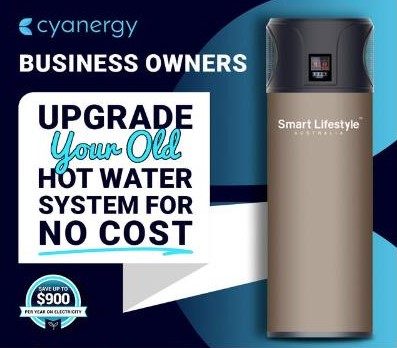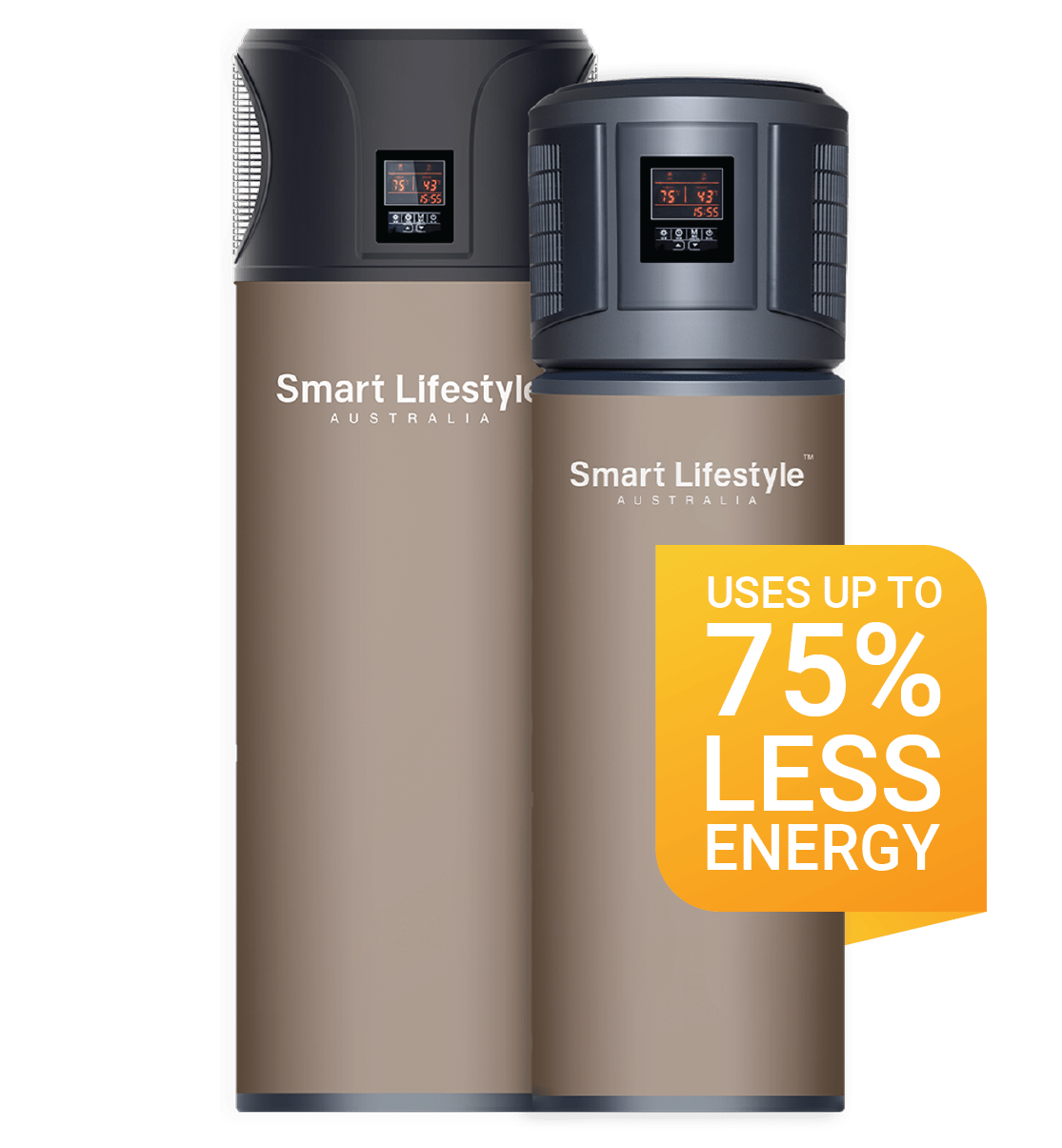Heat Pump
VS
Gas Hot Water System
Did you know that by taking 7-minute-long showers and other minor chores included in a day, your hot water electricity bill can account for roughly 30% of the whole quarterly energy bill?

Gas Hot Water System
How It Works
At a glance gas hot water system-
- Uses natural gas or LPG as the primary source of heat. If you choose to go for natural gas, consider the extra cost and higher burn-through rate compared to LPG.
- Recommended to be installed outdoors, as it requires proper ventilation.
- Very easy to install and requires no more than 2 to 3 hours to be up and running, including installation.
- Considered an economical choice, however, in 2022, we see a significant surge in gas prices due to recent events happening around the globe. An approximate 40% surge in gas prices has been reported in Australia.
- A very upfront approach to heating. Plain and simple to understand and operate.
- Uses gas, a fossil fuel AKA a non-renewable source of energy. This increases your carbon footprint significantly.
- In the case of a family of 4, in the span of 10 years, you will emit 7.3- 12.6 tonnes of GHG when you use either natural or LPG gas. (Source)
- Able to provide hot water instantly with an instant tank system.
- It must be handled with a lot of care and caution as it can ignite with pressure; unlikely but can happen. So, it requires a designated spot with proper ventilation and precaution.

Hot Water Heat Pump
This is one of the most efficient technologies used for water heating purposes. Rather than using direct electricity, a heat pump uses only a fraction of power to heat up the water. It significantly reduces your electricity usage in comparison to an electric hot water system, and it’s safe to say if you have solar panels installed on the rooftop, you can enjoy technically free hot water for a long time.
How It Works
They work similarly to a refrigerator but in reverse. An energy-efficient heat pump raises the temperature of the water using power and refrigerant instead of freezing it like a regular fridge. Heat pump water heaters use energy to move heat from one place to another, in this case, from the environment around to the refrigerant. They achieve this by heating the refrigerant that is being used and releasing that heat into the water. Again, it uses the basic principle of heat but in a smarter manner.
By transferring heat from the environment to the water rather than utilizing electricity directly, this indirect heating method conserves a significant amount of energy while accomplishing the same objective. You save a lot of money on your power bills thanks to this water heating technique; it uses minimal electricity.
At a glance heat pump
- 400% more efficient than a regular electric hot water system producing 4kWs of output with 1kW of input in energy.
- It does not use direct electricity but rather uses a fraction of it to draw existing heat from the environment into the tanks.
- -20 degrees to 45-degree Celsius operating range with a significantly noiseless experience.
- Not at all dangerous in comparison to a gas hot water system as it doesn’t require the combustion of gas.
- When you already have solar panels, the electricity required to operate the heat pump comes from there. Seemingly free hot water while emitting zero GHG gasses.
- Certain states can enjoy government-provided rebate to swap their electric hot water system with a heat pump.
- Installation can take a bit more time in comparison to the gas hot water system.
- Extremely efficient and environmentally friendly. Renewable source of energy makes it an even better experience.
- Usually installed outdoors for ease of access to natural heat.

Wondering if there is any present heat pump rebate Victoria or NSW? There are available rebates in both the states. Feel free to contact us for further information on the topic; we would be happy to help.
Get In Touch
By submitting this form, you agree to be contacted by our Cyanergy team member and receive communications from time to time. Please view our privacy policy for further information.




